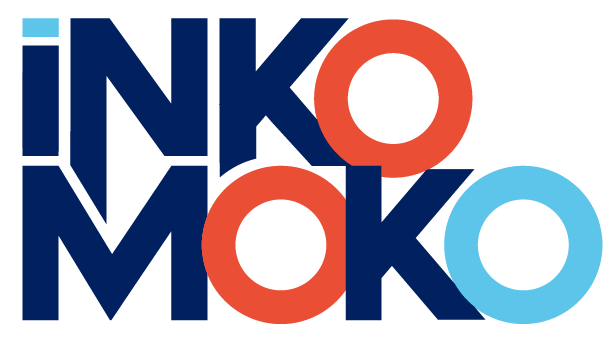Adelle Mubalama’s tailoring shop in the Kakuma Refugee Camp is a whirlwind of activity. Fabrics in vibrant African prints hang alongside neatly finished garments, and the buzz of sewing machines fills the air. For Adelle, a refugee from the Democratic Republic of Congo, this space represents far more than a business – it’s a testament to determination, resilience, and the transformative power of opportunity.
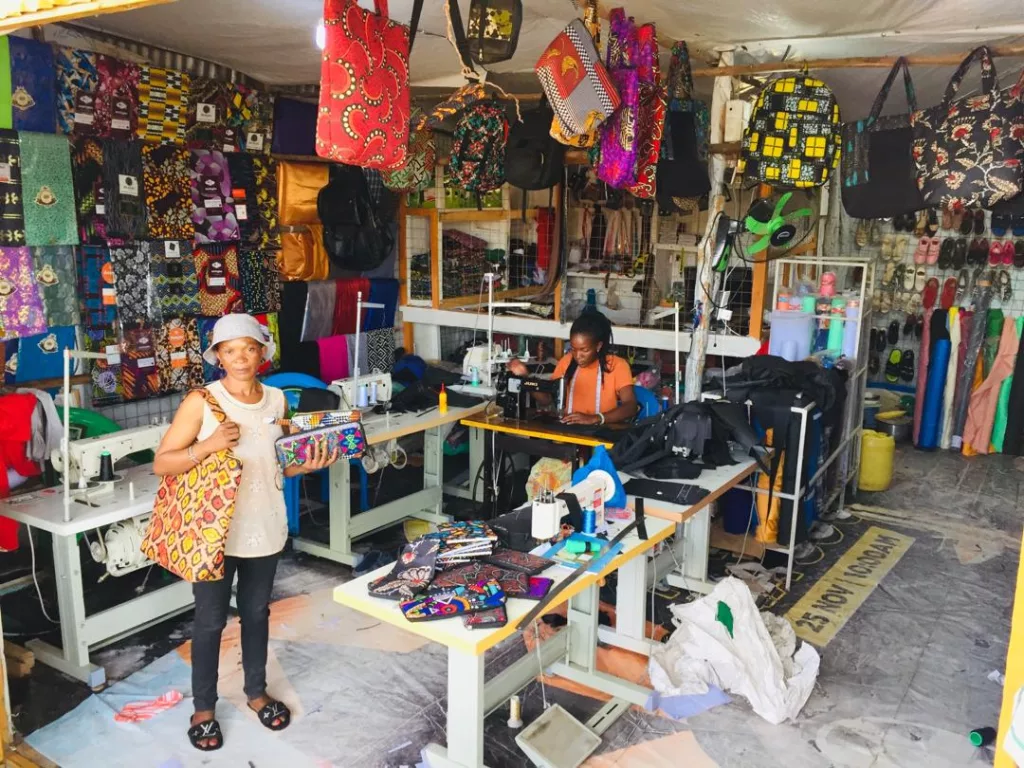
Adelle’s journey began in 2019 when she arrived in Kakuma, seeking safety and a future for her eight children. “Life here is hard,” she admits, “but I knew I could build something for my family.” With her husband’s support, she enrolled in school and got her certificate and later joined Inkomoko’s business training program in 2020. Using her savings , she launched her tailoring business, specializing in vibrant kitenge designs, uniforms, and a wide range of bags. Demand for her business grew and she received a Ksh 300,000 ($2,541 USD) investment from Inkomoko that she used to boost material to cater for her growing client’s needs.
Today, Adelle’s business employs 16 people, primarily women from the refugee community. She also runs workshops, empowering young girls with the skills they need to become self-sufficient. Her recent participation in Inkomoko’s first Market Linkages Forum has fueled even bigger dreams. “I sold everything I brought and established valuable contacts in Eldoret, Lodwar, and Nairobi,” she beams. This connection to broader markets means greater income potential for her family and staff.
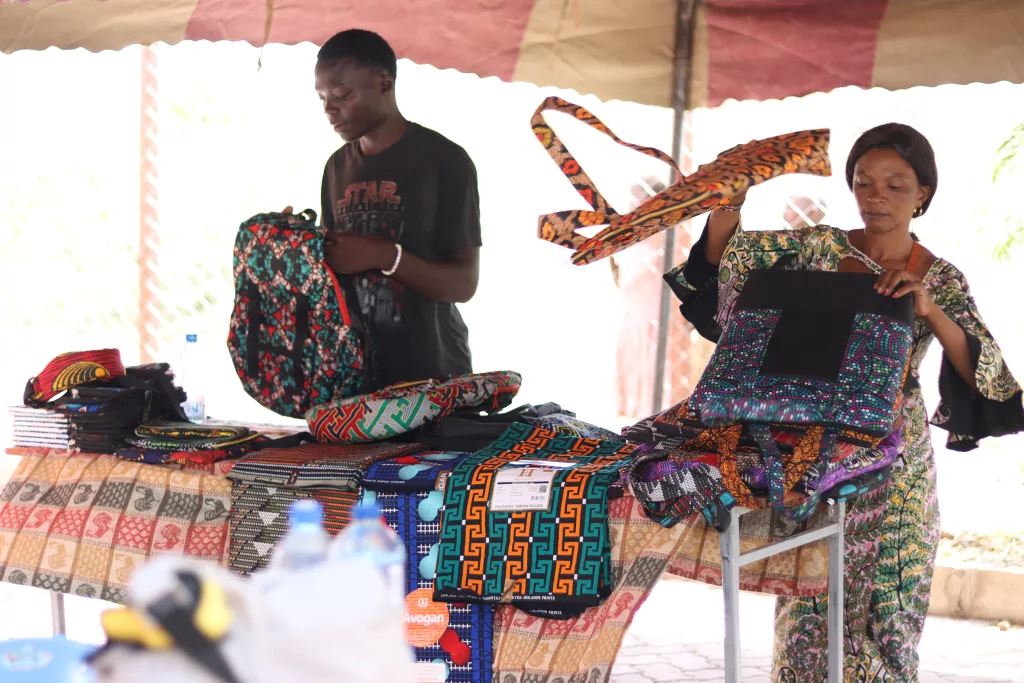
Adelle’s success underscores the crucial importance of inclusive market access for displaced entrepreneurs. But it wasn’t a one-way street. For Ruth Chepchirchir, a honey and water supplier from Eldoret, the journey to Kakuma was equally eye-opening. “I’d never imagined coming here, but Inkomoko made it possible,” Ruth enthuses. “I sold my entire stock and made connections that could open up a whole new market for my business.”
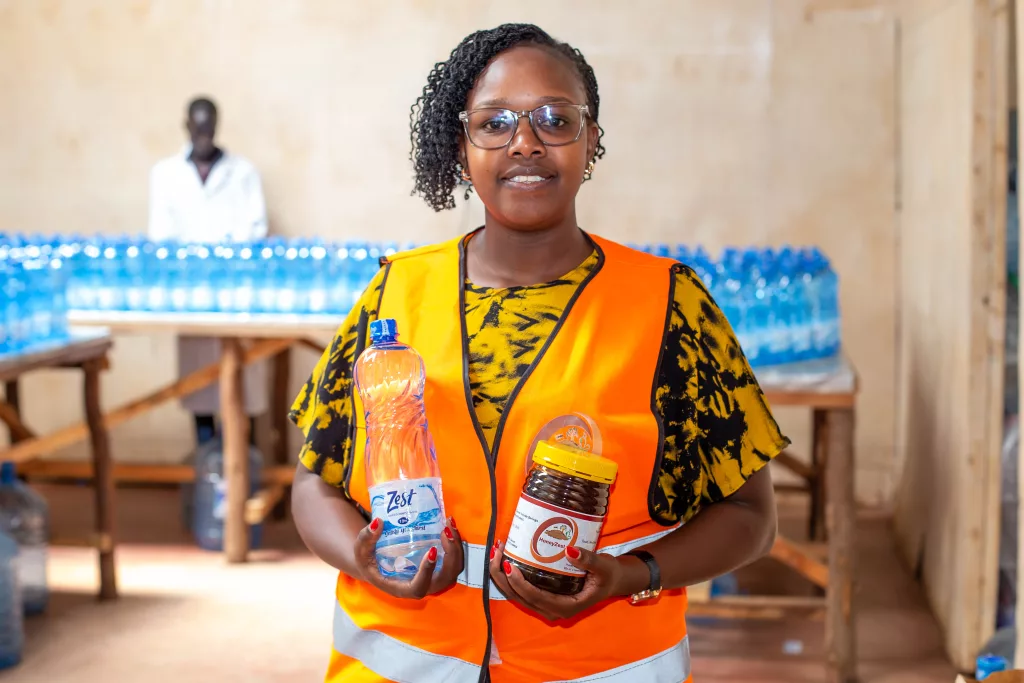
The bus ride from Eldoret to Kakuma, a harsh reminder of the logistical challenges these entrepreneurs face, also forged a sense of camaraderie and shared purpose. More than 30 suppliers from Eldoret seized the chance to network, share insights, and discover new ways to reach the untapped Kakuma market – a bustling community of over 300,000 with diverse consumer needs. Building trust across distances, these entrepreneurs became catalysts for inclusive economic growth.
The Forum underscores the power of connecting entrepreneurs and resources for everyone’s benefit. Martin Mwangi, a distributor of second-hand clothing, enthuses, “I loved everything about the market linkages, I interacted with other business people, and got 5 clients who want me to distribute to them regularly.” I really appreciate Inkomoko organizing this.”
The potential for business growth through these events is undeniable. Dennis Kimutai, an onion distributor, adds, “I’m glad I took part in this forum. I managed to get 10 clients who have already started making orders for onions. Truly, this was a great opportunity for me and the rest of the entrepreneurs I came here with.”
For Inkomoko, the Market Linkages Forum signifies more than just economic growth; it’s a demonstration of the boundless potential of refugees when granted the tools and opportunities to succeed. By connecting entrepreneurs from diverse backgrounds and advocating for inclusive policies, Inkomoko cultivates vibrant markets that benefit everyone. The Forum is just one piece of our holistic approach, which includes business training, affordable financing, and advocacy for policies that enable refugees to thrive. Their work is a powerful testament to the idea that investing in displaced entrepreneurs doesn’t just change lives – it has the power to reshape entire communities and challenge how we approach global displacement.
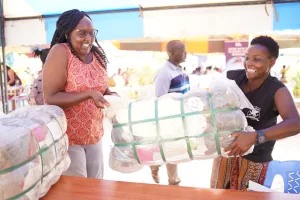
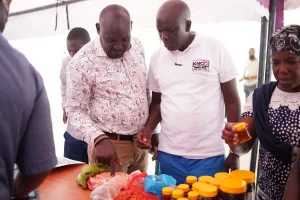
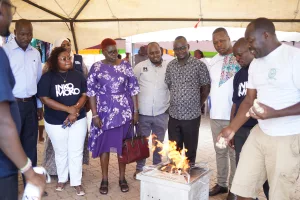
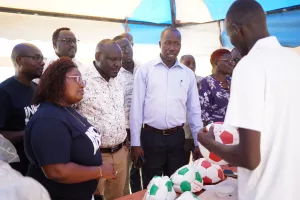
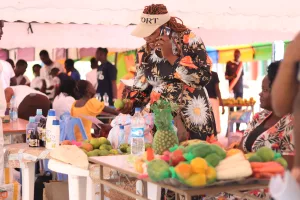
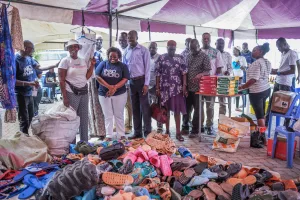
The bus ride from Eldoret to Kakuma, a harsh reminder of the logistical challenges these entrepreneurs face, also forged a sense of camaraderie and shared purpose. More than 30 suppliers from Eldoret seized the chance to network, share insights, and discover new ways to reach the untapped Kakuma market – a bustling community of over 300,000 with diverse consumer needs. Building trust across distances, these entrepreneurs became catalysts for inclusive economic growth.
The Forum underscores the power of connecting entrepreneurs and resources for everyone’s benefit. Martin Mwangi, a distributor of second-hand clothing, enthuses, “I loved everything about the market linkages, I interacted with other business people, and got 5 clients who want me to distribute to them regularly.” I really appreciate Inkomoko organizing this.”
The potential for business growth through these events is undeniable. Dennis Kimutai, an onion distributor, adds, “I’m glad I took part in this forum. I managed to get 10 clients who have already started making orders for onions. Truly, this was a great opportunity for me and the rest of the entrepreneurs I came here with.”
For Inkomoko, the Market Linkages Forum signifies more than just economic growth; it’s a demonstration of the boundless potential of refugees when granted the tools and opportunities to succeed. By connecting entrepreneurs from diverse backgrounds and advocating for inclusive policies, Inkomoko cultivates vibrant markets that benefit everyone. The Forum is just one piece of our holistic approach, which includes business training, affordable financing, and advocacy for policies that enable refugees to thrive. Their work is a powerful testament to the idea that investing in displaced entrepreneurs doesn’t just change lives – it has the power to reshape entire communities and challenge how we approach global displacement.
